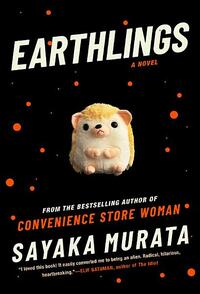Take a photo of a barcode or cover
challenging
dark
sad
tense
medium-paced
Plot or Character Driven:
Character
Strong character development:
Yes
dark
reflective
fast-paced
challenging
dark
reflective
sad
tense
medium-paced
Plot or Character Driven:
Character
Strong character development:
Complicated
Loveable characters:
Complicated
Diverse cast of characters:
Complicated
Flaws of characters a main focus:
Yes
challenging
dark
fast-paced
Plot or Character Driven:
Plot
Strong character development:
No
Loveable characters:
Complicated
Diverse cast of characters:
No
Flaws of characters a main focus:
Yes
I have no words, except for wtf
Graphic: Adult/minor relationship, Gore, Pedophilia, Sexual assault, Murder
Moderate: Confinement, Death, Incest, Sexual content, Suicidal thoughts, Violence, Cannibalism, Suicide attempt
Minor: Suicide, Kidnapping, Death of parent, Alcohol
fast-paced
Plot or Character Driven:
Character
Strong character development:
No
Loveable characters:
No
Diverse cast of characters:
No
Flaws of characters a main focus:
Yes
I get the feeling that Murata may have read the reviews on her other book, Convenience Store Woman, and noticed the somewhat tepid feeling people had about her main character suddenly wanting to stab a baby. She then decided the answer was to up her weirdness game.
First off, this book was hard for me in places. The issue of child abuse, both emotional and sexual, is extremely frank. My stomach sank as I read the inner monologue of a little girl who had convinced herself that her sexual abuse was just part and parcel of becoming a part of 'the Factory'. However, whilst some found the absurdity of it jarring, I found it terrifyingly real. Young girls find all sorts of ways to internalize their trauma and convincing themselves it is inevitable, a part of being a woman, is prominent in our day and age.
I enjoyed the first part of the book more than the latter. It was cathartic to read about the death of the Wicked Witch, heart wrenching to hear a little girls thoughts but most of all, strangely familiar. I often think Murata does write books for strange, dislocated women who find themselves at odds with the world. Although, in the ending I feel Murata took a leap too far for my familiarity to last. I understood 'the Factory', I recognized the bad friends and the constant questions. I didn't relate to the cannibalism. Though, that may be the point. Sometimes, trauma can't be undone. Sometimes, lines are crossed and no amount of 'wanting to be normal' can fix them completely.
What I did like was Murata's out and out honesty about the world; how she portrayed the people so vested in their own interests they were able to speak horrible truths without conscience, from parents admitting husbands cheat to friends assuming someones infertile. Once again, Murata made a world so terrifying real and self obsessed I could almost say I felt it in my bones. As for the last few chapters... well, they truly took off and went to another world.
First off, this book was hard for me in places. The issue of child abuse, both emotional and sexual, is extremely frank. My stomach sank as I read the inner monologue of a little girl who had convinced herself that her sexual abuse was just part and parcel of becoming a part of 'the Factory'. However, whilst some found the absurdity of it jarring, I found it terrifyingly real. Young girls find all sorts of ways to internalize their trauma and convincing themselves it is inevitable, a part of being a woman, is prominent in our day and age.
I enjoyed the first part of the book more than the latter. It was cathartic to read about the death of the Wicked Witch, heart wrenching to hear a little girls thoughts but most of all, strangely familiar. I often think Murata does write books for strange, dislocated women who find themselves at odds with the world. Although, in the ending I feel Murata took a leap too far for my familiarity to last. I understood 'the Factory', I recognized the bad friends and the constant questions. I didn't relate to the cannibalism. Though, that may be the point. Sometimes, trauma can't be undone. Sometimes, lines are crossed and no amount of 'wanting to be normal' can fix them completely.
What I did like was Murata's out and out honesty about the world; how she portrayed the people so vested in their own interests they were able to speak horrible truths without conscience, from parents admitting husbands cheat to friends assuming someones infertile. Once again, Murata made a world so terrifying real and self obsessed I could almost say I felt it in my bones. As for the last few chapters... well, they truly took off and went to another world.
challenging
dark
emotional
sad
tense
medium-paced
Plot or Character Driven:
A mix
Strong character development:
Complicated
Loveable characters:
Complicated
Diverse cast of characters:
Yes
Flaws of characters a main focus:
N/A
“disturbing” and “provocative” but so lazy in story development that it does absolutely nothing. did not enjoy. i laughed a couple times so that’s what the one star is for.
dark
sad
Graphic: Child abuse, Mental illness, Pedophilia, Physical abuse, Rape, Sexual assault, Sexual content, Cannibalism, Murder
challenging
dark
emotional
reflective
sad
medium-paced
Plot or Character Driven:
Character
Strong character development:
Complicated
Loveable characters:
Complicated
Diverse cast of characters:
No
Flaws of characters a main focus:
Yes



